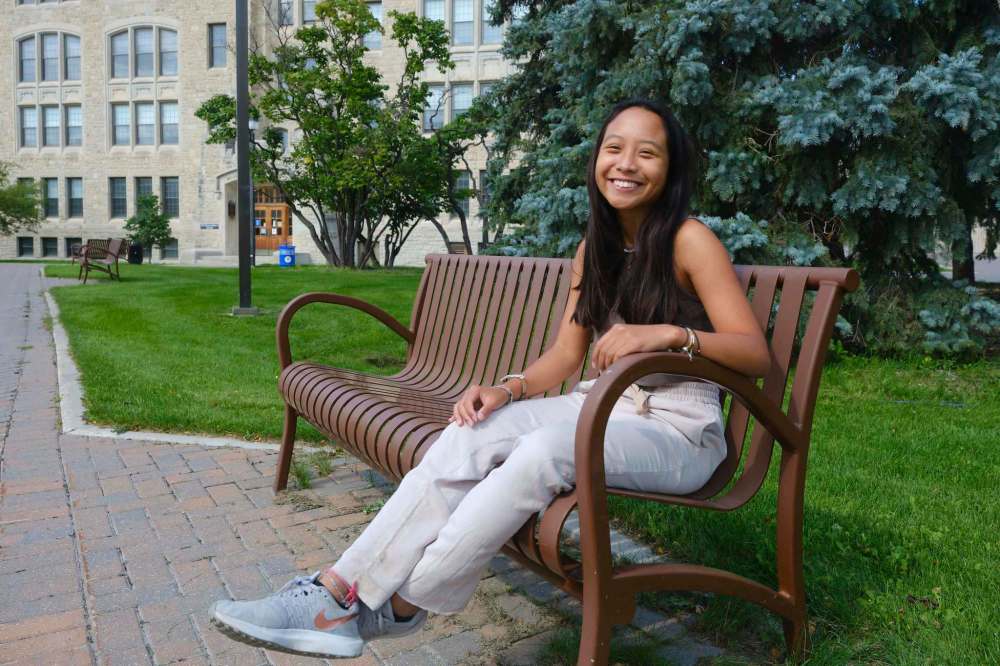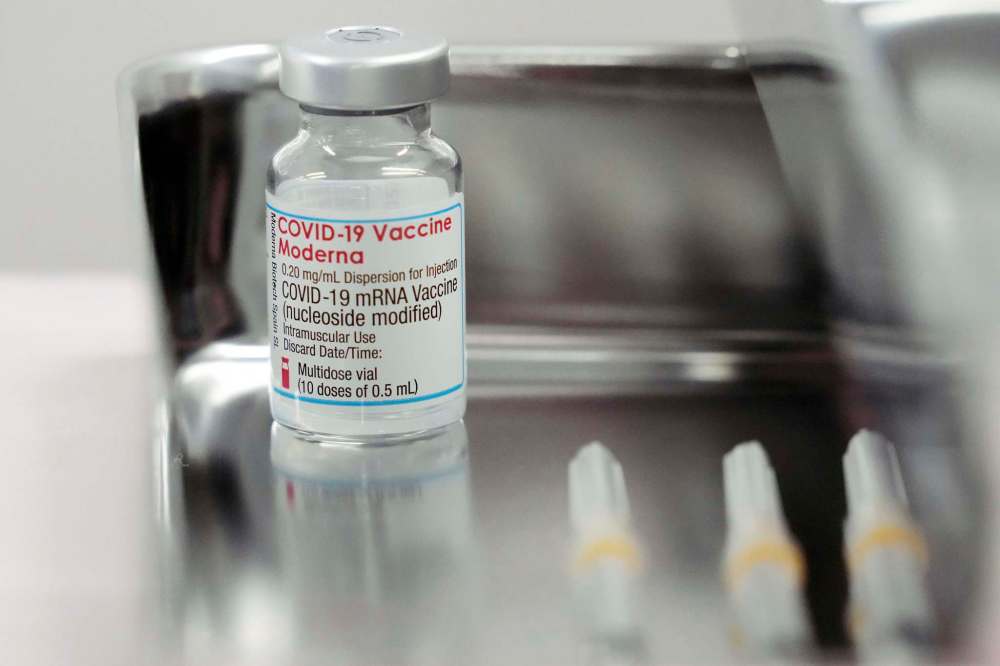Student ambassadors seek to tackle vaccine hesitancy
Advertisement
Read this article for free:
or
Already have an account? Log in here »
To continue reading, please subscribe:
Monthly Digital Subscription
$1 per week for 24 weeks*
- Enjoy unlimited reading on winnipegfreepress.com
- Read the E-Edition, our digital replica newspaper
- Access News Break, our award-winning app
- Play interactive puzzles
*Billed as $4.00 plus GST every four weeks. After 24 weeks, price increases to the regular rate of $19.00 plus GST every four weeks. Offer available to new and qualified returning subscribers only. Cancel any time.
Monthly Digital Subscription
$4.75/week*
- Enjoy unlimited reading on winnipegfreepress.com
- Read the E-Edition, our digital replica newspaper
- Access News Break, our award-winning app
- Play interactive puzzles
*Billed as $19 plus GST every four weeks. Cancel any time.
To continue reading, please subscribe:
Add Free Press access to your Brandon Sun subscription for only an additional
$1 for the first 4 weeks*
*Your next subscription payment will increase by $1.00 and you will be charged $16.99 plus GST for four weeks. After four weeks, your payment will increase to $23.99 plus GST every four weeks.
Read unlimited articles for free today:
or
Already have an account? Log in here »
Hey there, time traveller!
This article was published 03/09/2021 (1517 days ago), so information in it may no longer be current.
Bungee jumping and roller coaster rides satisfy adrenaline cravings for some, but science student Camila Oda prefers the state of elation achieved after convincing someone who is vaccine-hesitant to get immunized against COVID-19.
The 20-year-old was elated to learn that a friend, who also attends the University of Manitoba, recently decided to get vaccinated and had convinced their parents to do the same.
“It was just so overwhelming because I know vaccines save lives, and with variants and many things that are coming up, being protected is so important,” Oda said.

Earlier in the summer, Oda had a frank conversation with the friend about vaccines and sourcing accurate scientific information. At the time, she said her friend expressed uneasiness about getting a jab — in part, because of their family’s fears about the speed at which the vaccines were developed.
(An abundance of resources, willing trial participants and prior research on mRNA vaccines allowed for the apparently quick development.)
Oda is among the ambassadors involved with Students for Herd Immunity, a Canadian non-profit founded to boost vaccine uptake, who are eager to debunk the myths.
The non-profit was established in March, amid the start of Canada’s vaccine rollout, with a goal of disseminating accurate, age-appropriate and culturally-relevant information.
The idea is to equip students with the knowledge necessary to make informed decisions about their own health and leverage peer-to-peer conversations to tackle hesitancy, said founding director Cha Cha Yang, a 2019 graduate of human developmental and regenerative biology at Harvard University.
“A lot of public health efforts are really focused on adults,” said Yang, who is currently based in Ancaster, Ont. “We know that by engaging students, we’re also able to engage their whole community because they have really strong social ties.”
The ambassadorship program, which includes around 250 students from more than 120 schools, provides participants with sessions on everything from the importance of vaccines to advice on reaching out to teachers to set-up classroom talks about hesitancy. Student ambassadors, of which there are currently 12 in Manitoba, also learn about identifying peers who are vaccine-hesitant and how to thoughtfully address such attitudes.
The educational materials were created with input from dozens of volunteer health-care workers, scientists, teachers, parents and students.
Grade 12 student Reva Trivedi said she has learned about underlying reasons for hesitancy — distrust in the medical system being chief among them — and the importance of approaching such feelings with facts.
Reva has yet to come across hesitancy in-person, but the aspiring physician has scrolled through an abundance of it in online comment sections.
Equipped with knowledge from a recent workshop, she fact-checked a stranger on social media who falsely claimed mRNA vaccines alter one’s DNA. “It’s just not scientifically possible,” said the senior at St. John’s-Ravenscourt School, adding she sent the user a link to a scientific article.

Should the subject of vaccines come up in conversation at school, the 16-year-old plans to discuss her decision to get immunized and if warranted, point others to reliable sources of research.
Before Oda, who received an initial jab of Pfizer-BioNTech, booked a follow-up shot of Moderna, she had to address her parents’ worries about mixing vaccines with facts. The U of M student addressed concerns via research, which included calling up her uncle, a COVID-19 research scientist in Peru.
Empathy is key to approaching fears — be they related to infertility myths or something else, she said.
“(Students for Herd Immunity) is starting the conversation in a way that people feel safe and that people feel they are being heard and that their fears are valid,” added Oda.
Prior to both the massive vaccine rollout and rise of infectious variants, the target threshold for herd immunity against COVID-19 was believed to be between 60 and 70 per cent. It is now estimated at 85 per cent of a population.
Approximately 62 per cent of all Manitobans — including 77 per cent of those eligible to get a jab — have received two doses.
maggie.macintosh@freepress.mb.ca
Twitter: @macintoshmaggie

Maggie Macintosh
Education reporter
Maggie Macintosh reports on education for the Free Press. Originally from Hamilton, Ont., she first reported for the Free Press in 2017. Read more about Maggie.
Funding for the Free Press education reporter comes from the Government of Canada through the Local Journalism Initiative.
Every piece of reporting Maggie produces is reviewed by an editing team before it is posted online or published in print — part of the Free Press‘s tradition, since 1872, of producing reliable independent journalism. Read more about Free Press’s history and mandate, and learn how our newsroom operates.
Our newsroom depends on a growing audience of readers to power our journalism. If you are not a paid reader, please consider becoming a subscriber.
Our newsroom depends on its audience of readers to power our journalism. Thank you for your support.

